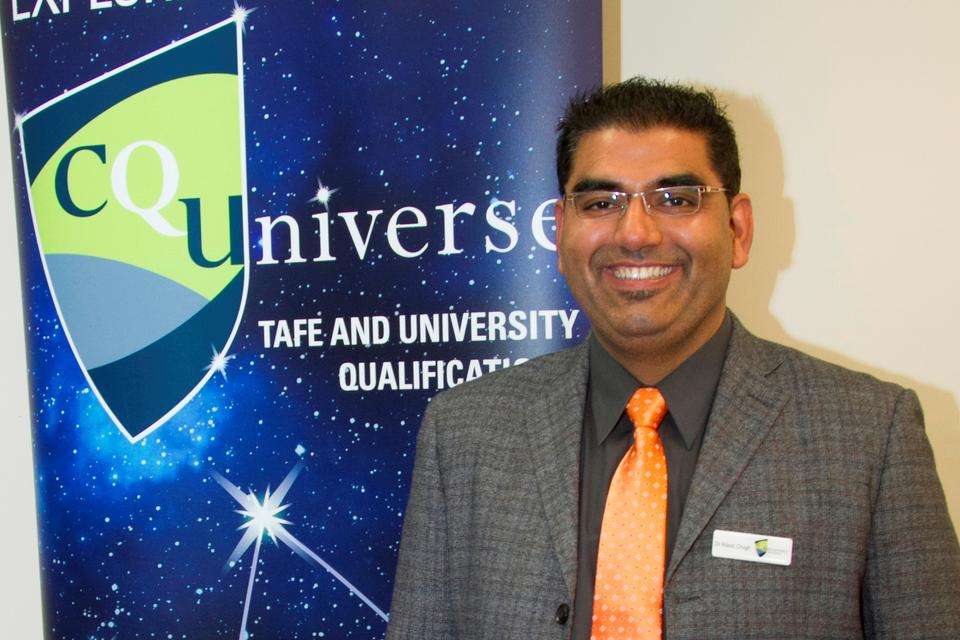In an exceptional move, Massey University in New Zealand has banned students from wearing watches in exam rooms.
One would assume the ban would apply to smartwatches alone but the blanket ban applies to all watches (traditional watches included).
In an opinion editorial also published in The Age newspaper,CQUniversity Senior Lecturer Dr Ritesh Chugh explores this issue, noting that the outward appearance of a smartwatch and traditional watch is almost the same.
"A smartwatch could be easily mistaken for a traditional watch, hence in order to eliminate the awkward, impractical and time-consuming process of identifying smartwatches in an exam room, it appears this blanket ban has been applied and exam policies changed.
"However, it would only be a fair debate if all educational institutions considered a ban on Internet enabled smartwatches that have the potential to be an instrument that could potentially facilitate cheating (as evident in this scenario from Vietnam).
"Imagine a student sending and receiving text messages through their smartwatch, searching online for answers or even worse talking to someone during the exam using their smartwatch. That is not all; smartwatches could also be used for other tasks such as performing mathematical calculations, language translation, putting information/notes onto the smartwatch and taking photos during exam.
"The reason mobile phones (and other electronic devices such as laptops, tablets) are currently banned from exam rooms is clear as they can lead to inappropriate means of academic assistance. So, it is only fair to assume the same reasons would apply to smartwatches. An interesting discussion thread can be found in this discussion forum where some students have confessed to using their smartwatch for cheating successfully.
"Smartwatches can also be used to covertly collaborate on multiple-choice exams in real time as demonstrated by an application developed by Migicovsky and others. Their paper illustrates how smartwatches can be used to undermine an academic testing environment. Banning the use of wearables (smartwatches) is one of the suggestions made in the paper. You would not see the likes of Samsung or Apple calling their smartwatch an instrument of cheating but this company very uninhibitedly calls their smartwatch 'The cheating watch' - a watch that stores all your knowledge in one place rather than your brain! Their website even goes on to say that it is 'A cheating watch for cheating in exams'.
"Apart from all other genuine uses of a smartwatch, it appears to be specifically designed for cheating in exams as it publicises an emergency button, which upon pressing will change from text mode to clock mode, block all other buttons and save the student from any further suspicion. So, the cat is out of the bag!
Students with smartwatches could also have an unfair advantage over other students. Whilst it is expected that most students will be honest in exams, there are always a few who may try to use smartwatches for iniquitous purposes. As smartwatches continue to evolve and become popular amongst students, it is important to consider their impact on carrying out a fair examination process for all students.
"Seeing their possible negative impact on academic integrity, conversations and subsequent bans on smart watches in exams have already begun in educational institutions (Belgium, Hong Kong, New Zealand, UK, USA) and it is expected educational institutions globally will follow suit.
"Or perhaps we should not sound the alarm bells too early and shy away from the use of smartwatches (and other technology) in exams and try to make them an integral part of the overall learning experience.
"In order to use smartwatches (and other portable and/or wearable technology) effectively in exams, it would be relevant to consider the merits they offer such as researching opportunities, collaboration and convenience.
"However, to effectively utilise these positive qualities, exams will need to have questions that demand students to research, collaborate and think critically in a short period of time in order to frame their responses. Designing exam questions that will require students to apply knowledge and skills in new and unfamiliar situations rather than relying on rote memory could be another alternative.
"So, the question that beckons interest now is whether to ban watches in exams or change the overall assessment strategy."

